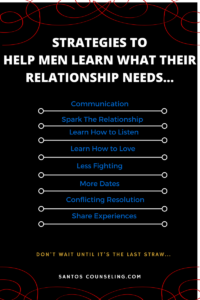Counseling For Teens That Experience Anxiety
Anxiety can impact teens in different ways. You may experience subtle hints of anxiety throughout the day with symptoms of changes in heartbeat, nervousness, and/or worry for no particular reason. Anxiety may come about during tense situations such as when you are fronted by peers at school, during a test, or while seating alone.
Generalized Anxiety Disorder is noted when a person experiences the following symptoms for a period of 6 months.: worry, irregular changes in heartbeat, difficulty concentrating or focusing muscle tension, and irregular changes to sleep and mood. For a full definition please reference DSM 5 GAD.
The intrusive thoughts that accompany anxiety disorder can be debilitating. Teens may experience thoughts that include but are not limited to:
- “I can’t do it”
- “I feel that I’m going to make a mistake”
- “I want to hurt myself”
- “I think something is wrong with me”
Anxiety-driven intrusive thoughts may leave a person stuck or insecure in their decisions and/or with their self-esteem, self-worth, and self-confidence. To overcome the challenge and manage the symptoms associated with anxiety, one can practice mindfulness.
Teen counseling is the perfect place for teens seeking a safe space to build a support system, gain coping skills and connect.
Benefits Of Counseling For Your Teen:
Avoiding unwanted triggers.
Consider the last time you experienced symptoms of anxiety. Did the symptoms make you feel restless or insecure? Avoiding negative or unwanted triggers can ease the escalation of symptoms. For instance, if you find yourself feeling anxious around certain people. Take time to remove yourself from the situation until you are able to build skills to overcome the challenge.
Practicing certainty.
Anxiety can create intrusive thoughts that challenge reality. You may find yourself feeling out of control or insecure. Practice creating questions around the specifics of the situation.
Increasing awareness of the symptoms associated with anxiety disorder can support with the overall management of anxiety and intrusive thoughts.
An example of this would be to take time to reflect on past experiences of anxiety. Asking questions (what happened? How did I feel? What did I feel?). Overall, the more questions asked the better one can understand the symptoms brought on by anxiety.
Common symptoms of anxiety include:
- Problems focusing or concentrating.
- Difficulty making decisions or making up your mind.
- Daydreaming or feeling as if you are in a “trance” like state.
- Hand tremors.
- Feeling overly sweaty.
- Nervous.
- Fearing something bad could happen.
- Emotionally struggling due to a lack of control.
- Feeling on edge or moody.
- Easily provoked or agitated.
Coping skills for anxious teens:
- Deep breathing.
- Going for a walk.
- Exercise.
- Get better sleep.
- Stress ball.
- Meditation.
- Counseling.
- Counting from 20 to 0.
- Role-playing.
- Visualizing what will happen prior to engaging in the act.
- Building positive statements to address intrusive thoughts.
Identifying triggers that promote anxiety or escalate symptoms associated to anxiety.
Triggers to anxiety are often dependent on the person. For instance, one may struggle with social settings and if asked to engage in public speaking, they may experience anxiety.
Common triggers anxious teens may experience:
- Social settings
- Work stress
- Life changes such as changing homes or awaiting a child
- Abuse
- Death or loss
- Family difficulties
- Relationship problems
- Trauma





